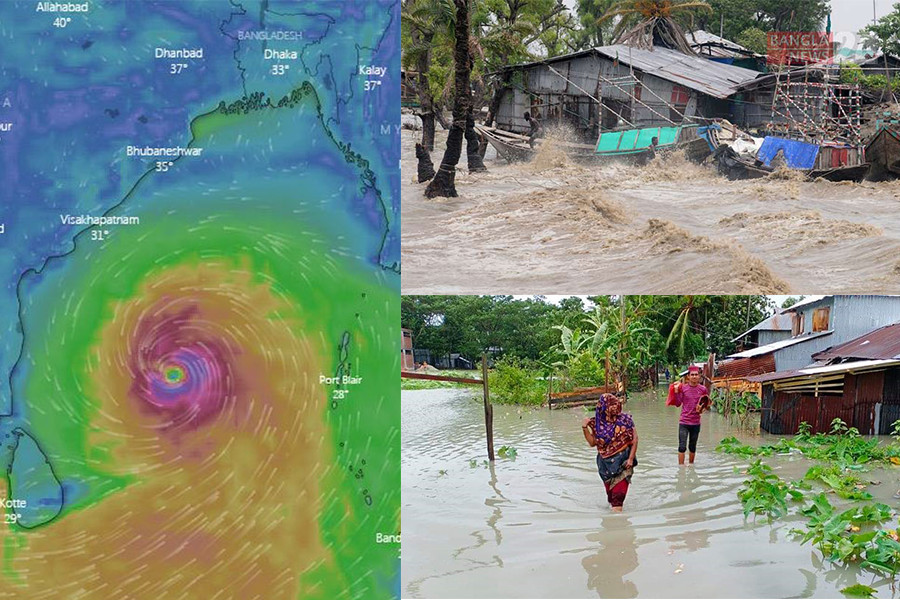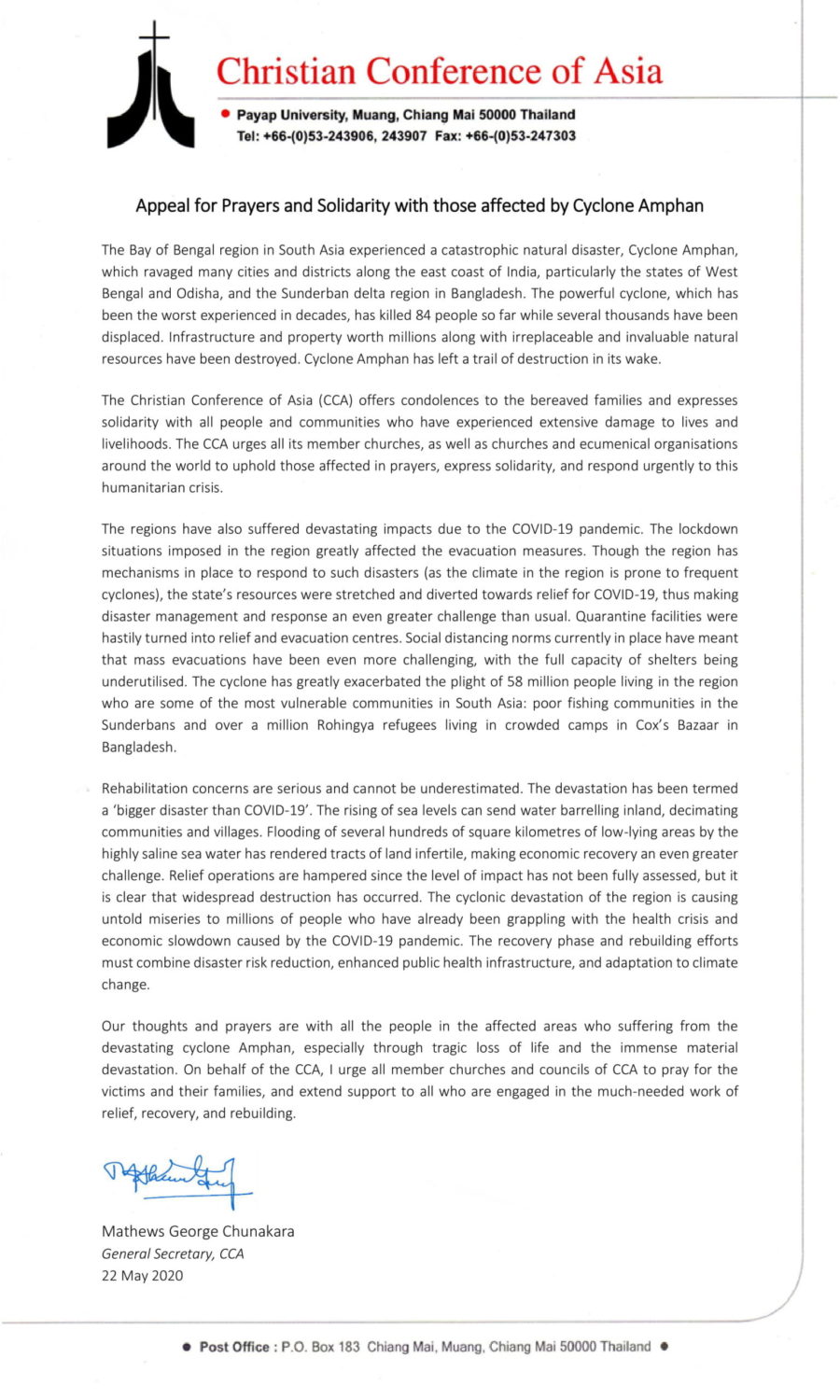CCA General Secretary expresses sympathy for those affected by Cyclone Amphan

The General Secretary of the Christian Conference of Asia (CCA), Dr Mathews George Chunakara, expressed sympathy and grief for those affected by Cyclone Amphan that struck on 20 May 2020.
Affecting the Bay of Bengal region, the catastrophic cyclone has killed 84 people and has ravaged many cities and districts along the east coast of India, particularly the states of West Bengal and Odisha, and the Sunderbans delta area in Bangladesh.
The super-cyclone, initially classified as a Stage 5 cyclone, subsequently turned into a Stage 3 cyclone as it made landfall. It has been termed the worst natural disaster that the region has seen in decades.
The CCA General Secretary urged member churches and councils as well as regional ecumenical organisations around the world to uphold in their prayers all who were affected, express solidarity, and urgently respond to the grave humanitarian crisis.
Relief measures have been hampered by the massive destruction of infrastructure and flooding. The impact of the cyclone has exacerbated the sufferings caused by the COVID-19 pandemic, making economic recovery and rehabilitation a serious challenge. The region is home to 58 million people, who are some of the most vulnerable in Asia including the poor fishing communities in the Sunderbans region in Bangladesh and over a million Rohingya refugees living in crowded temporary shelters in the refugee camps in remote Cox’ Bazaar in Bangladesh.
The full text of the CCA General Secretary’s statement can be accessed here:











